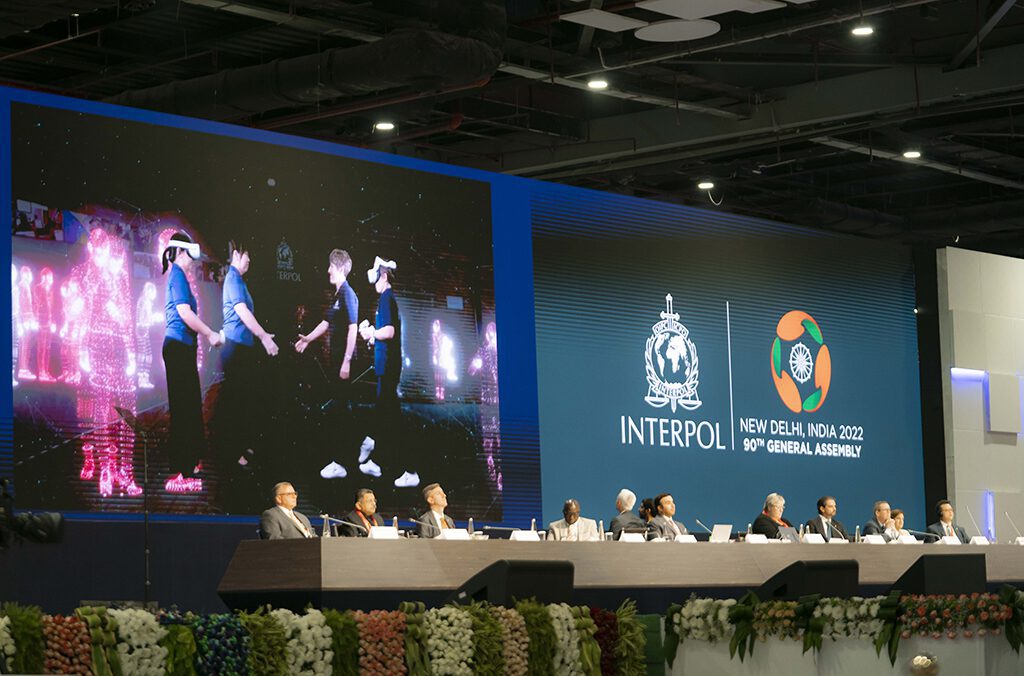News in a Glimpse:
- In order to combat the absenteeism issue, Toda City, Japan is utilizing tools built on the metaverse that a nonprofit organization developed last year.
- The students can move around the virtual campus and participate in their virtual classes thanks to those metaverse tools.
- The city officials propose that the metaverse classes should be treated as regular ones if the principal permits, as they are currently just a practice for when the kids return to physical school.
- As the security agency formally introduces the first Metaverse, INTERPOL joins in.
- The virtual General Secretariat of INTERPOL in Lyon, France can be explored by users in the INTERPOL metaverse, which also offers immersive training programs and allows INTERPOL officers to communicate using custom avatars.
Toda City, Japan is using tools based on the metaverse to address the absenteeism problem, despite the fact that absences from school are unavoidable. According to the report, students are using a tool that a nonprofit organization created last year.
They can move around the virtual campus and attend their virtual classes thanks to the aforementioned tool, preventing them from skipping class. However, if the school principal agrees, city officials hope and propose to count the aforementioned metaverse classes as regular ones. The goal of this setup is to get the kids ready for physical education again.
In addition to entertainment and education entering the metaverse, INTERPOL joins in as the security organization formally launches the first-ever Metaverse. The aforementioned global law enforcement-focused metaverse was developed and officially introduced during the 90th INTERPOL General Assembly in New Delhi, India.
Metaverse Tools to Prevent Absenteeism
The main objective of the metaverse is to enable real-time interaction and experiences despite great distances; this aspect of it is starting to be used in the security and education systems. Although absences from school are inevitable, Toda City, Japan, is using tools based on the metaverse to combat the absenteeism issue.
The report claims that students are making use of a tool that was developed by a nonprofit organization last year. The aforementioned tool allows them to move around the virtual campus and attend their virtual classes, preventing them from skipping class.
The purpose of this setup is to get the kids ready for physical education again, but if the school principal agrees, city officials hope and propose to count the aforementioned metaverse classes as regular ones. Regarding how the kids will react to it, a fifth grader said that he found it easier to relate to the lesson and communicate with others online than in the real world. Sugimori Masayuki, the director of the city’s education center, aspires for the program’s current participants to eventually be able to live independently.
Japan has a problem with school absences; according to a survey conducted by the education ministry in Japan, more than 200,000 thousand students missed at least 30 days of school in 2021. This issue is thought to have its roots in the Covid-19 pandemic and how this health issue has impacted how children interact and communicate with one another. In addition to absences, the Covid-19 measures were said to have a negative impact on the number of student suicides in 2020.
Aside from Toda City, Japan, which has recently used metaverse-based tools, many other educational institutions from various countries have been gradually embracing the metaverse as a tool for education. This includes the University of Tokyo, which declared that later this year, it would begin providing a number of engineering courses in the metaverse.
In addition, it’s been reported that the University of Nanjing in China is getting ready to launch one of the first metaverse majors in the nation, which aims to prepare students for careers related to the metaverse.
Ten American universities recently announced that they were constructing their virtual campuses with the aid of Meta’s $150 million immersive learning project. This announcement was made in the month of September. A metaverse campus is being developed by the Hong Kong University of Science and Technology in order to reach students who are unable to attend regular classes, according to their report.
INTERPOL Launches Its First Ever Metaverse

The International Criminal Police Organisation, or INTERPOL, joins in as the security organization formally launches the first-ever Metaverse, in addition to entertainment and education entering the metaverse. The aforementioned metaverse was created with law enforcement all over the world in mind and launched during the 90th INTERPOL General Assembly in New Delhi, India.
Registered users of the INTERPOL metaverse are free to explore the virtual replica of Lyon, France’s General Secretariat of INTERPOL. In addition, the INTERPOL metaverse’s immersive experience enables its officers to communicate via personalized avatars. The aforementioned metaverse also provides immersive training programs for conducting forensic investigations and other types of law enforcement work.
The security organization announced that a team of metaverse specialists had been formed to represent law enforcement’s concerns on a global scale during the 90th INTERPOL General Assembly. Additionally, this representation makes sure that security is built into the virtual world.
According to Madan Oberoi, executive director of technology and innovation at INTERPOL, by identifying the risks early on, they can collaborate with particular stakeholders to help shape the necessary governance frameworks and stop future criminal markets in the virtual world before they even arise. He also cautioned the populace about the risks of social engineering scams, violent extremism, and false information.
However, criminals have already begun to establish themselves in the metaverse, which is why the World Economic Forum has joined forces with organizations like INTERPOL, Meta, Microsoft, and others. The goal of the aforementioned initiative, it is thought, is to define and regulate the metaverse.
As the metaverse’s adoption spreads, more and more users are becoming familiar with and using it, which essentially means that the list of potential crimes to exist in this recently created list may also grow longer and eventually include crimes against children, data theft, money laundering, financial fraud, counterfeiting, ransomware, phishing, and sexual assault and harassment.
Oberoi acknowledged that the metaverse does have the potential to change many aspects of how people live their daily lives. He continued by saying that this has huge implications for law enforcement. He continued by saying that first-hand exposure is necessary for the police departments to comprehend the metaverse.
https://www.proactiveinvestors.com.au/companies/news/996806/interpol-enters-the-metaverse-996806.html



